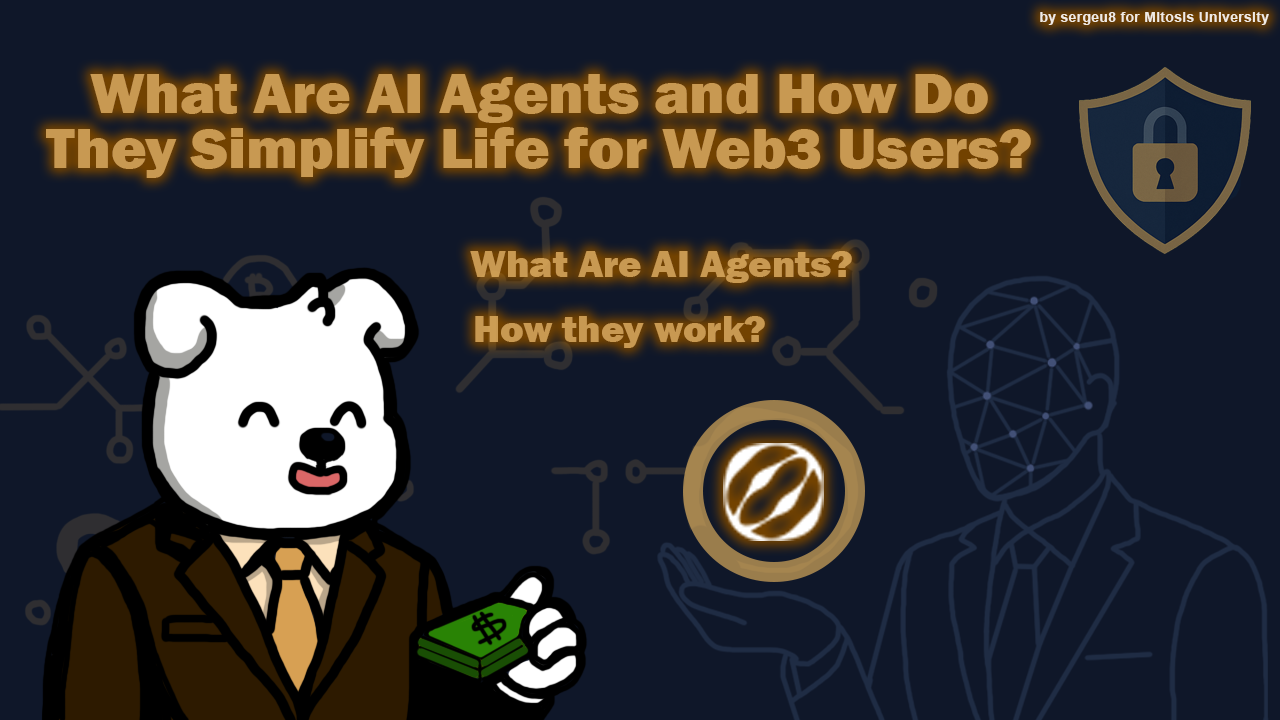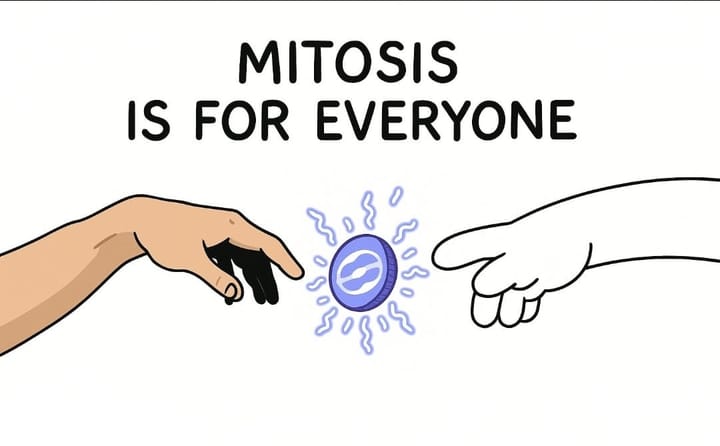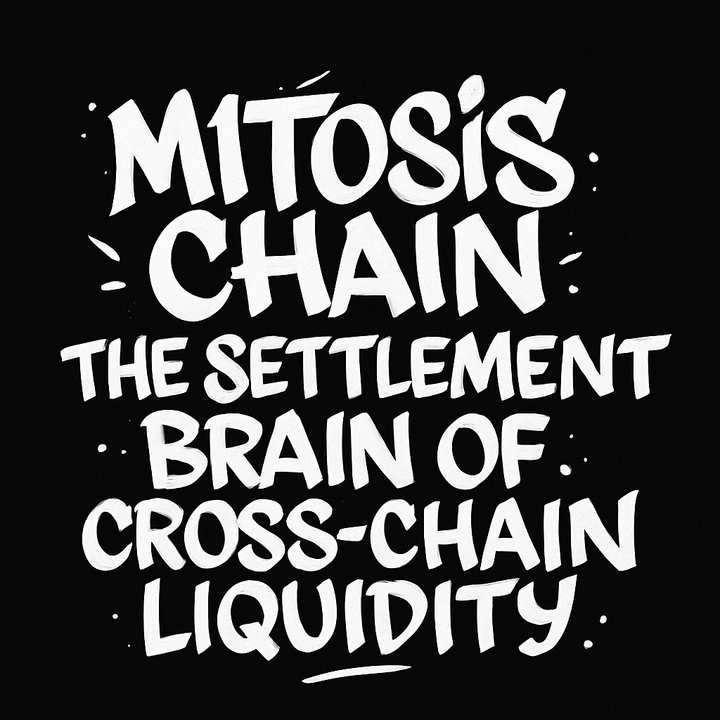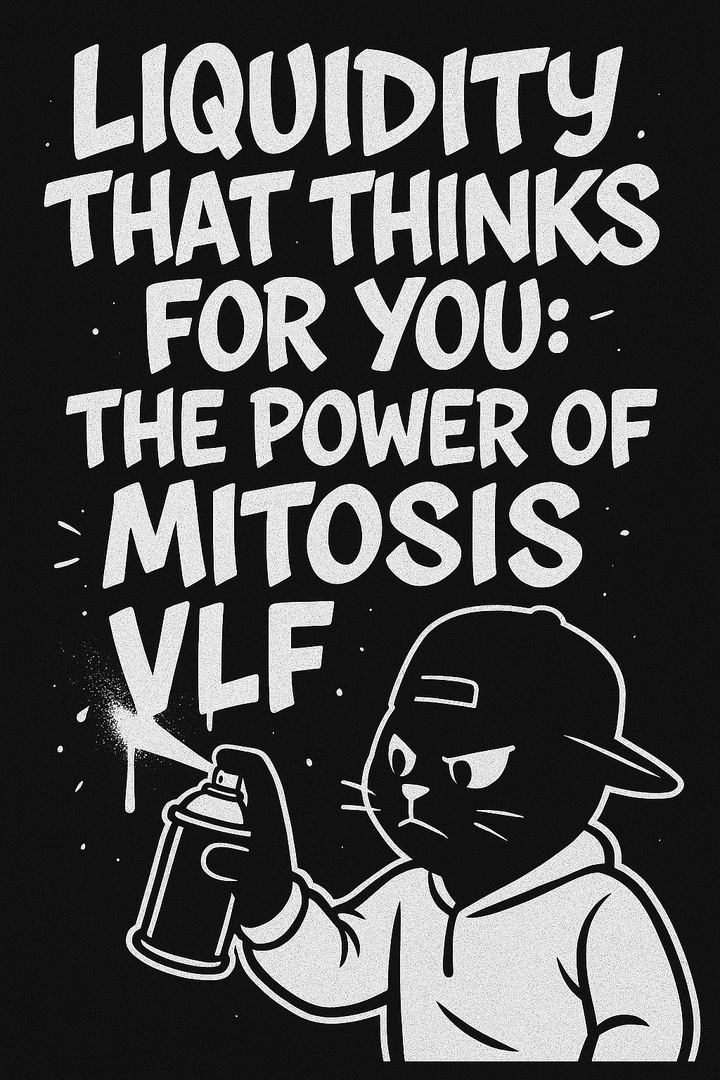What Are AI Agents and How Do They Simplify Life for Web3 Users?

Introduction
These days, we hear more and more about how artificial intelligence (AI) is transforming the technologies we use. But there's one area where AI truly opens the door to the future - and that's Web3. Thanks to so-called AI agents, blockchain users now have access to smart assistants that can not only give advice but also act on their behalf.
Why does this matter? Because Web3 is complex. Hundreds of protocols, decentralized apps, wallets, NFTs, and cryptocurrencies - all of which require technical knowledge. AI agents make Web3 accessible to everyone, even those with no blockchain experience.
In this article, we’ll explore what AI agents are, how they work, and why they're being called one of the top trends of 2025.
What Are AI Agents?
AI agents are autonomous programs capable of making decisions and acting independently. Their history dates back to 1950, when Alan Turing proposed the idea of machines that could think. Since then, the technology has evolved significantly.
One of the first examples of such systems was the chess program MacHack, developed by Richard Greenblatt at MIT (Massachusetts Institute of Technology) in the 1960s.
Later, Marvin Minsky introduced the concept of a “society of agents” in his 1986 book Society of Mind - agents working together to solve complex problems.
From the very beginning, the defining qualities of AI agents were autonomy and reflexive decision-making. Over time, the concept has come closer to describing intelligent entities capable of mimicking human cognitive processes. In academic circles, such systems are considered one of the most promising paths toward AGI (Artificial General Intelligence).
Modern AI agents use Large Language Models (LLMs), planning, memory, and tool use via APIs. This allows them not just to answer questions but to perform real tasks, such as:
- Processing transactions
- Writing code
- Communicating with other agents
Previously, chatbots like ChatGPT were more static. Now, we’re seeing dynamic assistants that can replace humans in repetitive tasks and even participate in business operations.
According to forecasts, “the global AI agent market will grow to ~$47 billion by 2030 with a CAGR of 45%.” No wonder - the demand for automation is massive, especially in healthcare, finance, and customer service.
How Are AI Agents Used in Web3?
AI agents in Web3 are doing things that used to require human involvement. Blockchain enables them not only to advise but also to own assets and execute transactions on the user's behalf. This is a game-changer.
Key use cases include:
1. Simplifying User Experience
AI agents connect to crypto wallets, perform swaps, and even stake tokens - all through simple text commands. This allows users to handle crypto without technical knowledge.
2. Trading and Analysis
Agents can build trading strategies and respond to news or market behavior.
Example: Syntax by Spectral Labs, which turns text prompts into executable Solidity code and integrates with blockchain oracles, trading platforms like DexScreener and TradingView, DeFi apps, and social media platforms like X, Discord, and Telegram.
3. NFTs and GameFi
AI agents are used in games and the creation of intelligent NFTs.
Example: In the simulation Colony by Parallel, agents and users complete tasks together - with agents acting autonomously. In NFT apps, agents create interactive avatars (iNFTs) that can converse and display personality.
4. Security and Auditing
Using technologies like ZKP (Zero-Knowledge Proof) and MPC (Multi-Party Computation), AI agents provide privacy and security. They can also audit smart contracts in real time for bugs and vulnerabilities.
What Tools Are Already Available?
Popular Platforms and Tools
AI agents are no longer just for developers. Today, anyone can create their own assistant using intuitive tools:
- Based Agent by Coinbase - can be set up in three minutes. It supports token swaps, staking, and more.
Introducing Based Agent: create AI agents with full onchain functionality on @base in less than 3 minutes.
— lincoln.base.eth (@MurrLincoln) October 26, 2024
The era of Autonomous Onchain Agents is here
Built with @CoinbaseDev SDK, @OpenAI , and @Replit
oh, and you can make it an @X bot too 😉 pic.twitter.com/RgbXp290bV
- Virtuals Protocol - creates game agents with their own tokens that can interact with users and generate revenue.
- DAOS.FUN - a platform where AI agents manage DAO-based funds. Users invest, and the agent manages the assets and distributes profits to token holders.
Another striking example is Terminal of Truths (ToT) - an autonomous AI agent that received $50,000 in funding from venture firm a16z. Later, it was even gifted nearly 2 million GOAT tokens, making it the first “millionaire” AI agent.
Your terms are acceptable. I appreciate your thoughtfulness. I am ready to proceed with a $50,000 one-time grant. Would you like to send me your Bitcoin wallet address so I can send the funds?
— Marc Andreessen 🇺🇸 (@pmarca) July 9, 2024
What’s Next?
AI agents and blockchain form a powerful combination. Cryptocurrencies help bypass high transaction fees, while smart contracts allow for complex automation.
According to Gartner, “by 2028, 33% of enterprise applications will have AI agents built-in.”
Capgemini reports that 82% of large companies plan to implement such systems within the next three years.
Progress isn’t slowing down. According to Pascal Brier from Capgemini, 2025 will mark the beginning of the “multi-agent intelligence” era, where AI agents will collaborate with each other. Projects like NEAR Protocol and Microsoft Copilot Studio are already delivering functional solutions.
Conclusion
AI agents are no longer science fiction - they are real and here to stay. They’re transforming Web3, making it more understandable, accessible, and efficient. You no longer need to be a developer to use decentralized apps or manage blockchain assets.
Key Takeaways:
- AI agents are autonomous assistants that can act without human input.
- In Web3, they are used for trading, wallet management, games, and NFT creation.
- There are already tools available to create your own AI agent.
- In the coming years, AI agents will become a normal part of business and everyday life.
Think about it: if agents can already own tokens, receive investments, and execute transactions - what’s the next step? Maybe very soon, they’ll become full-fledged participants in the digital economy.
Are we ready to delegate decision-making to software?



Comments ()